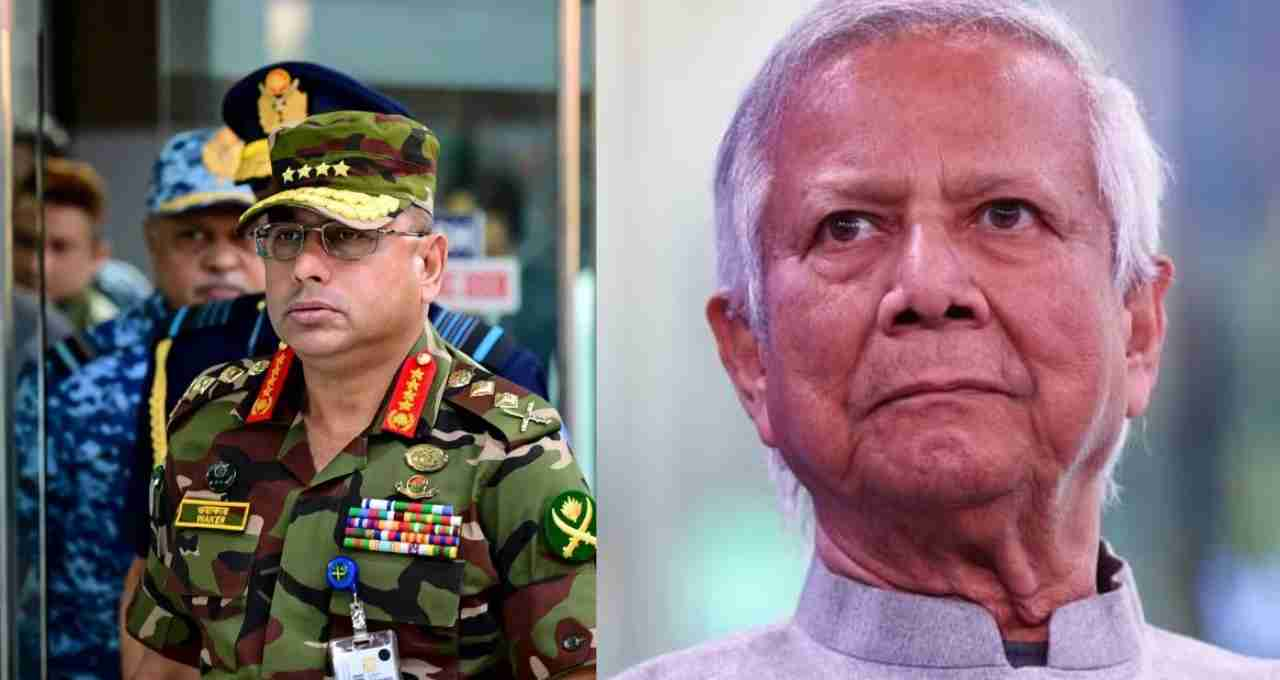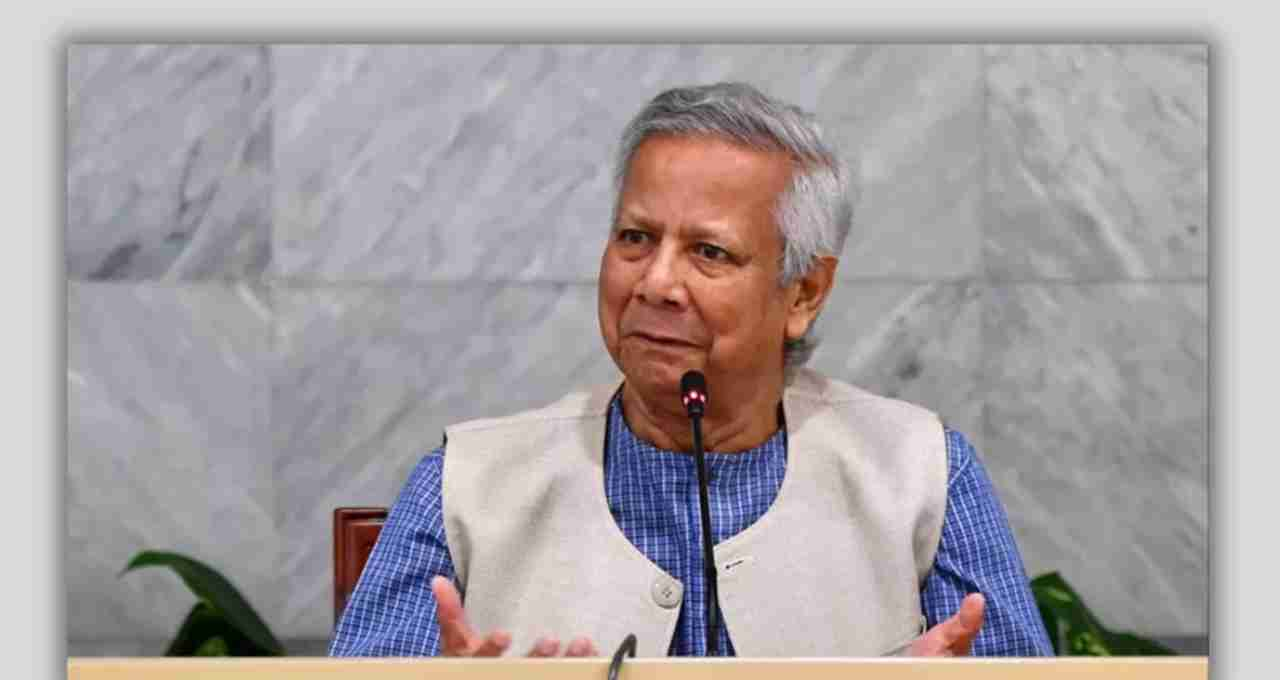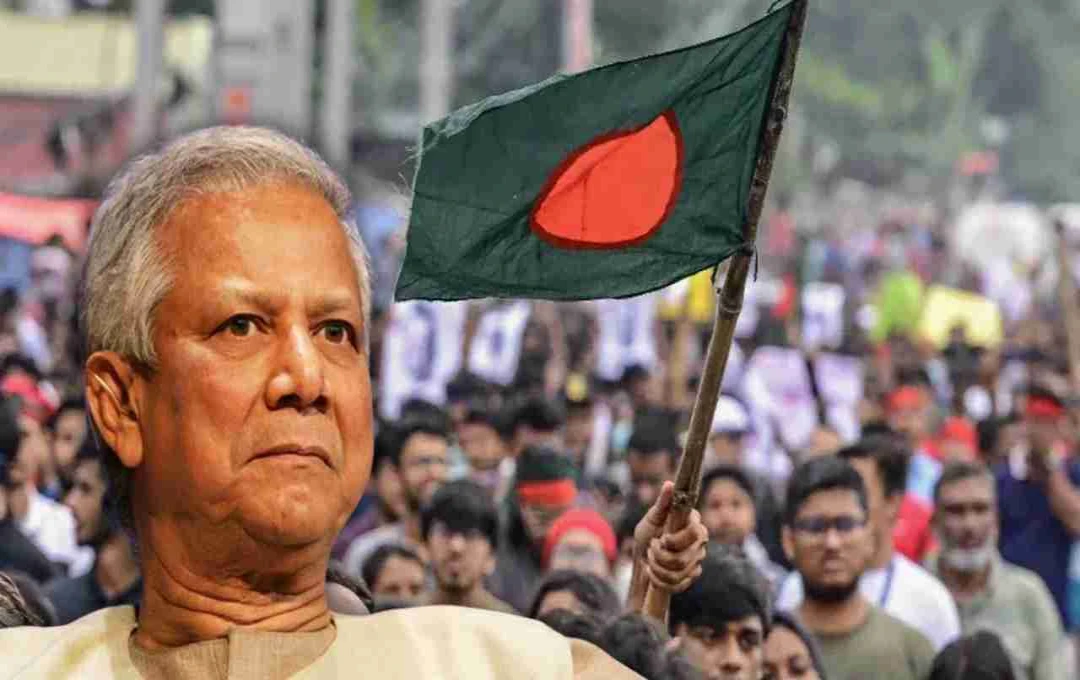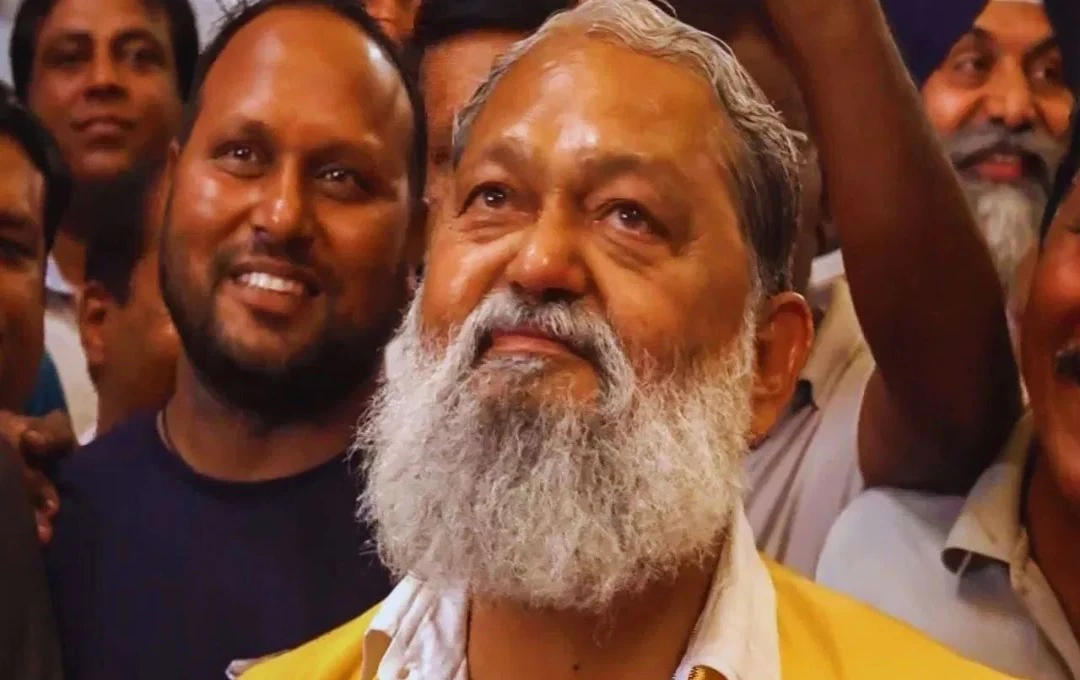Bangladesh's Interim Government Head Yunus Faces Mounting Military Pressure; Demands for December Elections; Shahbag Witnesses Pro-Yunus Demonstrations; Political Crisis Deepens.
Bangladesh Politics: Bangladesh, with a population of approximately 170 million, is once again grappling with a severe political crisis. Opposition parties, labor organizations, and civic groups in the capital, Dhaka, have intensified anti-government protests on the streets. At the center of this crisis is Nobel Peace Prize laureate and chief advisor to the interim government, Dr. Muhammad Yunus, whose leadership is increasingly being questioned. The military has issued a stern warning that elections without Yunus will be unacceptable, reigniting the debate between democracy and authoritarianism in the country.
Formation of the Interim Government and Yunus's Rise
Following widespread student movements and anti-corruption protests in Bangladesh last year, Sheikh Hasina's government was forced to resign. Subsequently, on August 5th, 2024, Muhammad Yunus was summoned from Paris and entrusted with the responsibility of leading the interim government. Yunus's selection was significant due to his international stature and accolades, including the Nobel Prize. However, within months, controversies surrounding his leadership emerged.
The Military's Firm Stance: Demand for December 2025 Elections from Yunus

In a recent interview, Army Chief General Walker-uz-Zaman explicitly stated that the interim government's sole purpose is to conduct elections, not to make policy decisions. He warned that if timely elections are not held and the military is sidelined from strategic matters, the situation could spiral out of control. The military asserted that it would not tolerate any authoritarian or anti-people activities.
Yunus's 'Plan B': Demonstrations of Power on the Streets
Following the military's warning, Yunus has opted to rely on street power to maintain his position. His hardline supporting organizations, such as Jamaat-e-Islami and Hefazat-e-Islam, have announced a large rally at Shahbag Square, termed the "March for Yunus." Slogans demanding Yunus remain in power for five years and advocating for "reforms first, then elections" are being raised.
Shahbag: A Symbol of Both Protest and Support
Shahbag Square has been a symbolic location in Bangladeshi politics. It served as the epicenter of the people's revolution against the war criminals of 1971. Now, the same location is being utilized by hardline forces in support of Yunus. Analysts believe these forces are attempting to transform Bangladesh into an Islamic state through Yunus.
Political Parties' Reactions
The Bangladesh Nationalist Party (BNP) has demanded that Yunus announce the election date immediately. Conversely, the National Citizens Party (NCP) wants Yunus's reforms implemented before elections are held.
The BNP has also objected to the participation of student leaders in Yunus's cabinet and demanded their removal. Meanwhile, Jamaat-e-Islami chief Shafiqul Rahman has called for an all-party meeting to resolve the issues.
Yunus's Potential Resignation: Strategy or Reality?

Media reports suggest Yunus is considering resignation. His advisors claim that the military's response and public pressure have led him to believe he is no longer suitable for the role. However, it is also being viewed as a strategic move to keep his supporters active.
His advisor, Faiz Tayyeb, wrote, "The military should not interfere in politics. Mr. Yunus should be given time to complete the reforms."
Whispers of Dissatisfaction within the Military?
Some reports claim that lower-ranking military officers are unhappy with the interim government. Leaflets have surfaced accusing the government of discrediting the military and using it against the people. The leaflets read, "No more...The army is the protector of the nation, not a collaborator in any anti-people conspiracy."
Former army chief Iqbal Karim Bhuiyan warned that the situation could mirror 2006, when a military-backed government delayed elections before eventually succumbing to international pressure to hold them.
International Reaction and the Western Stance
While the US, France, and other Western countries have supported Yunus, this support is now controversial. Critics of Yunus question why countries that previously labeled Sheikh Hasina a "dictator" are now supporting an unelected government.













